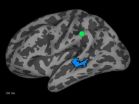Robots may need to include parental controls
2014-04-30
(Press-News.org) Older adults' fears that companion robots will negatively affect young people may create design challenges for developers hoping to build robots for older users, according to Penn State researchers.
Companion robots provide emotional support for users and interact with them as they, for example, play a game, or watch a movie.
Older adults reported in a study that while they were not likely to become physically and emotionally dependent on robots, they worried that young people might become too dependent on them, said T. Franklin Waddell, a doctoral candidate in mass communications. Those surveyed also indicated that although they were not worried about being negatively affected by robots, the adults would still resist using the devices.
"We've seen this type of effect, which is usually referred to as a third-person effect, with different types of media, such as video games and television, but this is the first time we have seen the effect in robotics," said Waddell. "According to a third person effect, a person says they are not as negatively affected by the media as other people."
The researchers, who presented their findings today (April 30) at the Association for Computing Machinery's Conference on Human Factors in Computing Systems, said this effect could eventually lead to changes in behavior. For instance, people who believe video games harm young people may tend to avoid the games themselves. Likewise, older adults who believe that companion robots could harm young people may tend to avoid robots.
To compensate for the effect, robot designers may need to consider adding controls that will help adults monitor the use of robots by children, said Waddell, who worked with S. Shyam Sundar, Distinguished Professor of Communications and co-director of the Media Effects Research Laboratory, and Eun Hwa Jung, a doctoral candidate in mass communications.
"Robot designers and developers look at older adults as a central user base for companion robots," said Waddell. "This effect is something they should consider when designing the interface for the robots to make sure, for example, that the robot includes some type of parental controls."
Robots with parental controls may convince adults that they can own and use robots and still protect children from their fears that the devices might lead to laziness and dependency.
The researchers studied two types of robots: companion robots and assistant robots, said Sundar. Assistant robots are devices that help with everyday tasks, such as vacuuming the floor or playing a CD, he said, while companion robots are more interactive.
This interactivity may be one reason that users tend to attach human-like emotions to companion robots, Waddell said.
"A companion robot provides the user with a source of friendship," said Waddell. "They might watch TV with the participant, provide emotional support, or complete an activity with the user."
Waddell said the participants did not seem to show the same level of apprehensions about assistant robots.
Researchers asked 640 retirees over the age of 60 -- 53 percent female and 47 percent male -- about whether robots would have negative effects on themselves and on others. For instance, they asked the subjects whether robots would make them lazier and encourage them to interact less often with other people. They then asked similar questions about the effects of robots on young people.
INFORMATION:
The Korea Institute for Advancement of Technology supported this study, which is part of an international research and development program between Penn State and the Industrial Academy Cooperation Foundation of Sungkyunkwan University in South Korea.
ELSE PRESS RELEASES FROM THIS DATE:
Water-based 'engine' propels tumor cells through tight spaces in the body
2014-04-30
Johns Hopkins researchers have discovered a new mechanism that explains how cancer cells spread through extremely narrow three-dimensional spaces in the body by using a propulsion system based on water and charged particles.
The finding, reported in the April 24 issue of the journal Cell, uncovers a novel method the deadly cells use to migrate through a cancer patient's body. The discovery may lead to new treatments that help keep the disease in check. The work also points to the growing importance of studying how cells behave in three dimensions, not just atop flat two-dimensional ...
Frog eggs Help MU researchers find new information on grapevine disease
2014-04-30
COLUMBIA, Mo. – Vitis vinifera are common grapevines and are the world's favorite wine-producing varietal. However, research has shown that grapevines are susceptible to powdery mildew, a plant disease, which contributes to significant crop loss for most commercial wine varietals that are cultivated each year. Now, researchers at the University of Missouri have used frog eggs to determine the cause of this disease, and have found that a specific gene in the varietal Cabernet Sauvingon, contributes to its susceptibility.
"Powdery mildew disease causes the leaves of the ...
Predators predict longevity of birds
2014-04-30
This news release is available in German. Ageing inevitably occurs both in humans and in other animals. However, life-span varies widely across species. Researchers of the Max Planck Institute for Ornithology in Seewiesen have now found a possible general mechanism explaining differences in longevity. They investigated life history data of nearly 1400 bird species and found that avian life span varies considerably across the entire Earth, and that much of this variation can be explained by the species' body mass and clutch size and by the local diversity of predator ...
Your stress is my stress
2014-04-30
This news release is available in German. Stress is contagious. Observing another person in a stressful situation can be enough to make our own bodies release the stress hormone cortisol. This is the conclusion reached by scientists involved in a large-scale cooperation project between the departments of Tania Singer at the Max Planck Institute for Cognitive and Brain Sciences in Leipzig and Clemens Kirschbaum at the Technische Universität Dresden. Empathic stress arose primarily when the observer and stressed individual were partners in a couple relationship and the ...
A fattening gene
2014-04-30
This news release is available in German. The long-term consumption of too much high-energy and high-fat food leads to overweight. Behind this trivial statement lies the extremely complex regulation of lipid metabolism. Together with colleagues from Japan, scientists from the Max Planck Institute for Heart and Lung Research in Bad Nauheim have now discovered that the Sirt7 gene plays a central role in energy metabolism. Despite consuming high-fat food, genetically modified mice that lack the gene maintain their normal weight.
Food was not always available to such ...
In recognizing speech sounds, the brain does not work the way a computer does
2014-04-30
VIDEO:
Patterns of activation induced by listening to human speech move across brain hemispheres over a period of 300 milliseconds in these images, produced by combining data from EEG, MEG and...
Click here for more information.
How does the brain decide whether or not something is correct? When it comes to the processing of spoken language – particularly whether or not certain sound combinations are allowed in a language – the common theory has been that the brain applies a ...
Social media users need help to adjust to interface changes
2014-04-30
Social media companies that give users a greater sense of control can ease them into interface changes, as well as curb defections to competitors, according to researchers.
"Several studies have looked into how social media companies have failed," said Pamela Wisniewski, a post-doctoral scholar in information sciences and technology, Penn State. "What we need to think about is how social media companies can be more adaptive and how they can improve the longevity of their sites.
In a study of the reaction to the introduction of Facebook's Timeline interface between 2011 ...
Parents just as likely to use cell phones while driving, putting child passengers at risk
2014-04-30
Ann Arbor, Mich. — Despite their precious cargo, parents are no less likely to engage in driving distractions like cell phone use than drivers from the general population, according to a new University of Michigan study published in
Academic Pediatrics.
The study found that 90 percent of parent drivers said they engaged in at least one of the 10 distractions examined in the study while their child was a passenger and the vehicle was moving, says lead author Michelle L. Macy, M.D., M.S., an emergency medicine physician at the University of Michigan's C.S. Mott Children's ...
Study questions Neandertal inferiority to early modern humans
2014-04-30
The embargo has been lifted for the article, 'Neandertal Demise: An Archaeological Analysis of the Modern Human Superiority Complex.'
An analysis of the archaeological records of Neandertals and their modern human contemporaries has found that complex interbreeding and assimilation may have been responsible for Neandertal disappearance 40,000 years ago, in contrast to many current theories, according to results published April 30, 2014, in the open access journal PLOS ONE by Paola Villa from the University of Colorado Museum and Wil Roebroeks from Leiden University ...
Lymph node ultrasounds more accurate in obese breast cancer patients
2014-04-30
ROCHESTER, Minn. — Mayo Clinic research into whether ultrasounds to detect breast cancer in underarm lymph nodes are less effective in obese women has produced a surprising finding. Fat didn't obscure the images — and ultrasounds showing no suspicious lymph nodes actually proved more accurate in overweight and obese patients than in women with a normal body mass index, the study found. The research is among several Mayo studies presented at the American Society of Breast Surgeons annual meeting April 30-May 4 in Las Vegas.
Researchers studied 1,331 breast cancer patients ...




